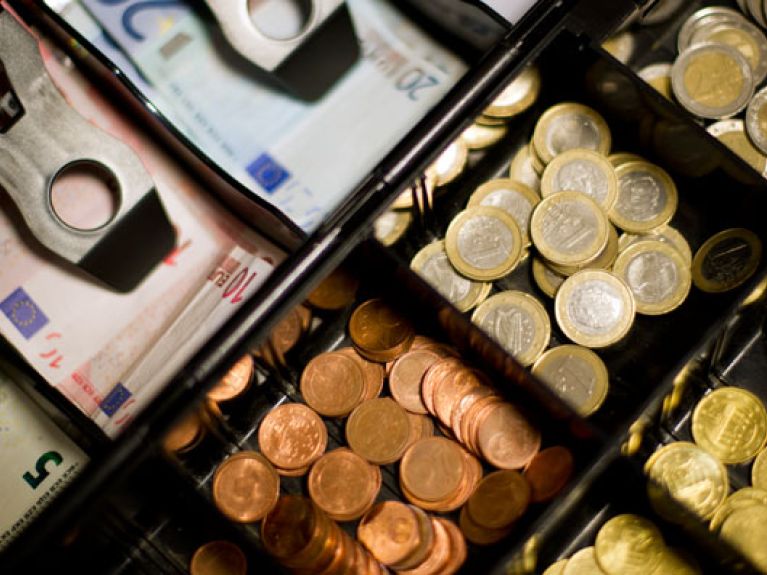The abolition of cash?
Germans prefer cash, other countries are restricting cash transactions – and economic experts disagree. Each viewpoint has something to be said for it. An overview.

Let’s take a look inside the wallets and purses of the average German: according to a report by the Bundesbank, every adult carries 103 euros in notes and coins. In addition to cash, Germans will frequently carry bank and credit cards with them and can also often make payments using a mobile phone or over the Internet.
Nevertheless, they mainly choose to use cash – four out of five transactions in Germany are completed that way. What the statistics also show, however, is that the younger people are, the more likely they are to use cashless payments.
That takes us to the recurring debate on what future cash will have – and ought to have. Eleven EU countries already have clear legal rules on the maximum amount people are allowed to pay with coins and banknotes. In Poland the limit is 15,000 euros, while in Portugal and Italy cash payments end at 1,000 euros. In France, this upper limit will apply from September 2015 for transactions between residents.
The end of the drugs trade, corruption and illegal employment
Opponents of coins and notes, like “economic wise man” Peter Bofinger, argue that lots of time and money could be saved if all transactions were performed by cashless means. This would not only do away with waiting for change at the supermarket, but also make illegal undeclared work much more difficult because all transfers would be visible. Corruption would also be more difficult to conceal and even the illegal drug trade would have a problem. Furthermore, it would mean the end of certain transaction costs for businesses: for example, spending on counterfeit money checks and money transports. Ultimately, economists see improved control of monetary policy if citizens no longer hoard large amounts of cash at home during a period of low or even negative interest rates.
On the other hand, supporters of cash, like Lars Feld, another of the German government’s five “economic wise men”, warn against all too transparent transfers, which would soon emerge if transactions could only be made by virtual means. He says there is no reason to deprive citizens of a popular means of payment. Instead they should be allowed to make their own choice. Supporters of this idea like to refer to a maxim attributed to Fyodor Dostoyevski: “Money is coined liberty.”
